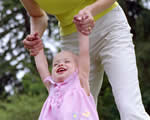 Go to main content
Go to main content
Archive Website of the UK government
Please note that this website has a UK government accesskeys system.
Main menu
Page menu
Money, tax and benefits

 Child Benefit - which changes you need to report
Child Benefit - which changes you need to report

It's important to let the Child Benefit Office know of any changes in your circumstances as soon as possible. This will make sure you get the money you're entitled to without any delays, and also that you don't get overpaid and have to pay some back.
Changes to do with you
Some changes in your circumstances can affect your entitlement to Child Benefit. You must tell the Child Benefit Office as soon as possible if any of the following changes happen.
|
Type of change |
You must tell the Child Benefit Office if: |
|---|---|
|
Family changes |
|
|
Bank account, name or address changes |
|
|
Contributions to a child change or stop |
|
|
Absence from the UK |
|
|
Other changes |
|
Changes to do with your child
Some changes in your child's circumstances can affect your entitlement to Child Benefit. You must tell the Child Benefit Office as soon as possible about any of the following changes.
|
Type of change |
You must tell the Child Benefit Office if your child: |
|---|---|
|
Changes in your child's education or training |
|
|
Your child's away from home |
|
|
Other changes |
|
If your child dies
You will need to let the Child Benefit Office know if your child dies. It will be a difficult time for you but you can usually get Child Benefit for up to eight weeks after the date your child died. This may help with extra costs you face at this time.
How to report the changes
You can report changes:
- online - follow the link below
- by calling the Child Benefit Helpline
- by writing to the Child Benefit Office
More useful links
Useful contacts
Provided by HM Revenue and Customs
 Facebook
Facebook Twitter
Twitter StumbleUpon
StumbleUpon Delicious
Delicious Reddit
Reddit